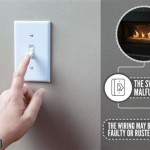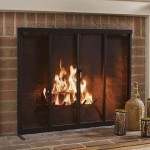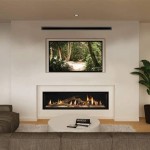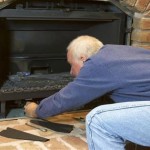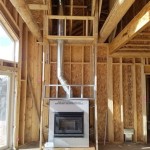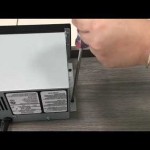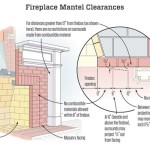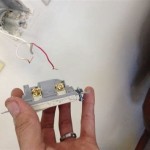Natural Gas Fireplace Inserts: Understanding Vented Models
Natural gas fireplace inserts have emerged as a popular heating solution for homeowners seeking an efficient and aesthetically pleasing alternative to traditional wood-burning fireplaces. Among the different types available, vented natural gas fireplace inserts offer a unique set of characteristics and benefits, influencing heating performance, installation requirements, and overall user experience. This article aims to provide a comprehensive overview of vented natural gas fireplace inserts, exploring their operational principles, advantages, disadvantages, installation considerations, and maintenance needs.
A vented natural gas fireplace insert is a self-contained heating appliance designed to be installed within an existing fireplace opening. Unlike vent-free models, vented inserts require a fully functional chimney or vent system to expel combustion byproducts, such as carbon dioxide and water vapor, to the outside atmosphere. The inclusion of a vent system plays a crucial role in maintaining indoor air quality and ensuring safe operation.
The operation of a vented natural gas fireplace insert involves several key steps. First, natural gas is supplied to the burner through a gas line. An ignition system, typically employing a pilot light or electronic igniter, initiates combustion. The burning gas produces heat and flames, which radiate into the room, providing warmth. Simultaneously, the vent system draws combustion byproducts away from the living space, preventing their accumulation indoors. A thermostat controls the gas flow to maintain a desired room temperature.
Key Point 1: Advantages of Vented Natural Gas Fireplace Inserts
Vented natural gas fireplace inserts offer a number of advantages over their vent-free counterparts and traditional wood-burning fireplaces. These benefits stem primarily from their safe operation and realistic flame appearance.
One significant advantage is enhanced indoor air quality. The presence of a vent system ensures that combustion byproducts are effectively removed from the home, minimizing the risk of carbon monoxide poisoning and other respiratory issues. This is particularly important for individuals with allergies, asthma, or other sensitivities to air pollutants. By directing exhaust gases outside, the living space maintains a healthier environment.
Another advantage is the realistic flame appearance. Vented inserts often feature more vibrant and natural-looking flames compared to vent-free models. This is because they receive a greater supply of oxygen, which supports a cleaner and more complete combustion process. The result is a flame that more closely resembles that of a traditional wood fire, enhancing the aesthetic appeal of the fireplace.
Furthermore, vented inserts offer a wider range of design options. Manufacturers produce vented models in various styles, sizes, and finishes to complement different interior decors. This allows homeowners to choose an insert that seamlessly integrates with their existing fireplace and living space. Some models feature realistic log sets, ember beds, and decorative surrounds that further enhance their visual appeal.
Finally, vented systems are generally more forgiving in terms of installation. While proper installation is always crucial, the requirement for a working chimney often makes adapting existing fireplaces simpler than attempting to retrofit for a vent-free model that might not be properly sized for the space or meet local codes regarding fresh air intake.
Key Point 2: Disadvantages and Considerations for Vented Inserts
Despite their advantages, vented natural gas fireplace inserts also present certain disadvantages and considerations that homeowners should be aware of before making a purchase. These include lower heating efficiency and venting requirements.
A primary disadvantage is lower heating efficiency compared to vent-free models. Because vented inserts exhaust a portion of the heat produced by combustion through the vent system, they are less efficient at transferring heat into the room. The efficiency rating of a vented insert typically ranges from 60% to 80%, while vent-free models can achieve efficiencies of 80% or higher. Heavier usage will result in a higher gas bill compared to a vent-free option to achieve the same level of heating.
The venting requirements also pose a significant consideration. The installation of a vented insert necessitates a fully functional chimney or vent system that meets specific requirements. This may involve inspection, cleaning, and repair of the existing chimney to ensure it is in good condition and capable of safely venting combustion byproducts. In some cases, a new vent system may need to be installed, which can add to the overall cost and complexity of the project. Improper venting can lead to dangerous carbon monoxide buildup inside the home.
Moreover, vented inserts are typically more expensive to install than vent-free models due to the added complexity of the venting system. The cost of installation can vary depending on the condition of the existing chimney, the type of venting required, and the labor rates in the area. Homeowners should obtain multiple quotes from qualified installers to ensure they are receiving a fair price.
Another consideration is the potential for heat loss through the chimney when the fireplace is not in use. Even with the damper closed, some heat can escape through the chimney, reducing the overall energy efficiency of the home. To mitigate this issue, consider installing a chimney cap or damper seal to minimize air leakage.
Key Point 3: Installation and Maintenance of Vented Natural Gas Fireplace Inserts
The installation and maintenance of vented natural gas fireplace inserts are crucial for ensuring their safe and efficient operation. Proper installation should always be performed by a qualified HVAC technician or licensed gas fitter. Neglecting maintenance can lead to performance issues, safety hazards, and reduced lifespan of the appliance.
The first step in the installation process is to assess the existing fireplace and chimney. A professional will inspect the chimney for cracks, leaks, and other damage that could compromise its integrity. The chimney should be cleaned and inspected to ensure it is free of obstructions and capable of safely venting combustion byproducts. Also, the gas line should be inspected to ensure it meets both the local codes and the requirements for the new insert to be installed.
Next, the insert is carefully placed into the fireplace opening and connected to the gas line and vent system. The vent system must be properly sealed to prevent leaks and ensure that all combustion byproducts are directed outside. The gas line connection should be tested for leaks using a gas leak detector. After the installation is complete, the technician will test the insert to ensure it is operating correctly and safely. They will also provide instructions on how to operate and maintain the appliance.
Regular maintenance is essential for keeping a vented natural gas fireplace insert in good working order. At least once a year, a qualified technician should inspect and clean the insert, including the burner, pilot light, and vent system. The burner should be cleaned to remove any debris or buildup that could obstruct the gas flow. The pilot light should be checked to ensure it is burning properly. The vent system should be inspected for blockages and leaks.
Homeowners should also perform routine maintenance tasks, such as cleaning the glass door and checking the log set for damage. The glass door can be cleaned with a mild glass cleaner and a soft cloth. The log set should be inspected for cracks or chips and replaced if necessary. It is important to follow the manufacturer's instructions for cleaning and maintaining the insert.
Finally, it is crucial to have a carbon monoxide detector installed in the home, especially near the fireplace. A carbon monoxide detector will alert you to the presence of dangerous levels of carbon monoxide, allowing you to take immediate action to protect yourself and your family. Test the carbon monoxide detector regularly to ensure it is functioning properly.
In summary, vented natural gas fireplace inserts offer a combination of aesthetic appeal, ease of use, and enhanced safety, making them a viable heating option for many homeowners. However, it is important to carefully consider the advantages and disadvantages of vented inserts before making a decision. Proper installation and maintenance are essential for ensuring their safe and efficient operation. By understanding the key aspects of vented natural gas fireplace inserts, homeowners can make informed choices and enjoy the warmth and ambiance of a fireplace without compromising their safety or indoor air quality.

Direct Vent Gas Insert With Intellifire Plus Ignition System Ipi Natural Nee Fireplaces

Majestic 30 Inch Ruby Direct Vent Gas Fireplace Insert With Blower

Majestic Ruby 35 Direct Vent Gas Insert Ruby35 North Country Fire

35 Ruby Contemporary Intellifire Touch Direct Vent Fireplace Insert Blower And Remote Electronic Ignition Majestic

Majestic Ruby 25 Direct Vent Gas Insert Ruby25 North Country Fire
Understanding How Direct Vent Works Heat Glo

Freestanding High Efficiency Direct Vent Gas Fireplaces Inserts Stoves Godby Hearth And Home

Superior 27 Inch Direct Vent Gas Fireplace Insert

White Mountain Hearth Rushmore Direct Vent Insert With Truflame Tech Fireplaces Usa

Buy Gas Insert 1 Victory Direct Vent San Francisco Bay Area Ca The Fireplace Element
Related Posts

